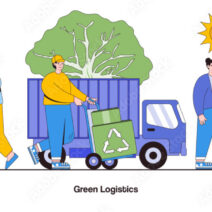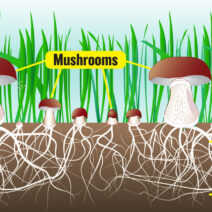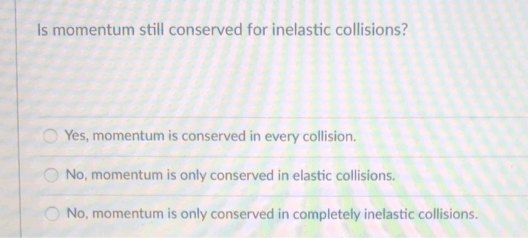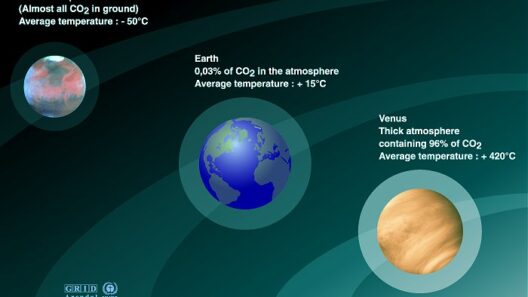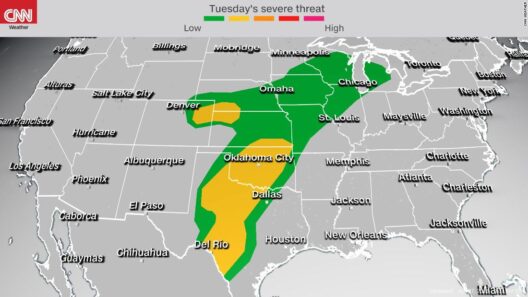Global warming is no longer an abstract concept lurking on the horizons of scientific discussions. It is a palpable crisis that threatens the very essence of life on Earth. As we grapple with the reality of this issue, knowing the effective ways to combat it can empower individuals and communities alike. This guide delineates essential do’s and don’ts, providing a comprehensive framework for taking meaningful action.
Understanding the Urgency
Before delving into actionable insights, it’s vital to grasp the magnitude of global warming. The planet’s average temperature has risen by about 1.2 degrees Celsius since the late 19th century, primarily due to increased carbon dioxide emissions from fossil fuel combustion. This warming effect exacerbates extreme weather events, melting polar ice, and rising sea levels, which in turn lead to habitat loss and species extinction.
Recognizing the profound repercussions of global warming is the catalyst for change. An informed populace can transform concern into action.
Do: Educate Yourself and Others
Knowledge is power. A thorough understanding of climate science, policies, and solutions equips individuals to make informed decisions. Engage with reputable sources, such as scientific journals, documentaries, and expert discussions. Attend workshops and lectures in your area. Furthermore, sharing this knowledge amplifies its impact. Host discussions or create informative content on social media to elevate awareness among peers.
Don’t: Fall for Misinformation
In the vast expanse of the internet, misinformation proliferates with alarming speed. Whether it’s the minimization of climate change or spurious claims about alternative energies, discerning fact from fiction is crucial. Rely on credible organizations like NASA, the Intergovernmental Panel on Climate Change (IPCC), and renowned environmental NGOs to verify information. Critical thinking should be your steadfast companion in discerning the truth.
Do: Reduce Your Carbon Footprint
Your daily choices have a carbon impact, contributing to or alleviating the climate crisis. Begin with evaluating your consumption patterns and identifying areas for reduction. Opt for energy-efficient appliances, switch to LED lighting, and unplug devices when not in use. Little changes culminate in substantial effects. Furthermore, consider adopting a plant-based diet or reducing meat consumption; livestock farming is a significant contributor to greenhouse gas emissions.
Don’t: Overlook Transportation’s Impact
Transportation is one of the leading contributors to carbon emissions. Relying on personal vehicles instead of public transportation perpetuates the problem. Do not underestimate the environmental value of public transport, biking, and walking. If possible, partner with others for carpools or use electric vehicles. Investing in sustainable forms of transport demonstrates an unwavering commitment to combating global warming.
Do: Advocate for Policy Change
Individual efforts are paramount, but they must be complemented by systemic change. Advocate for policies that promote renewable energy, protect forests, and regulate emissions. This can involve voting for environmentally responsible leaders, supporting local initiatives, and participating in campaigns that demand legislative action. Collective advocacy can lead to tectonic shifts in policy frameworks.
Don’t: Complacently Accept the Status Quo
A defeatist attitude may emerge from the overwhelming nature of climate change. However, acquiescing to the status quo is detrimental. Every voice contributes to a chorus seeking transformation. Remaining passive in the face of adversity only exacerbates the crisis. Mobilize, engage, and insist on change.
Do: Embrace Sustainable Practices
Transitioning to a sustainable lifestyle isn’t as daunting as it seems. Incorporate sustainable practices like composting, recycling, and reducing plastic usage into your daily routine. Support local farmers by purchasing organic and locally sourced products, thus minimizing transportation emissions associated with food production. This conscious effort can rejuvenate local economies while contributing to a healthier planet.
Don’t: Rely Solely on Technology
While technological advancements such as solar panels and electric cars are pivotal in the fight against global warming, they are not silver bullets. Relying solely on technological fixes without behavioral change can be ineffective. It is essential to remember that genuine transformation emerges from a marriage of innovation and lifestyle modifications.
Do: Participate in Community Initiatives
Community initiatives, such as tree planting, clean-up drives, and educational workshops, offer a dynamic way to contribute to environmental conservation. Joining forces with like-minded individuals amplifies the impact of local efforts, fostering a sense of purpose and belonging. These initiatives can also cultivate an intergenerational dialogue about climate responsibility.
Don’t: Isolate Yourself
The battle against climate change can be isolating, but solitude can breed despair. Connect with organizations and activists both locally and globally. Collaboration fosters creativity and innovation. Engaging with a diverse network can provide fresh perspectives and reinvigorate motivation.
Conclusion
Fighting global warming is not merely an individual obligation; it is a collective endeavor that demands engagement, education, and unequivocal action. By adopting mindful practices and advocating for systemic change, we can ignite a transformation that preserves our planet for future generations. Each deliberate choice creates ripples that can inspire widespread change. Remember, the solution begins with you. Embrace the challenge; the future of our planet depends on it.
